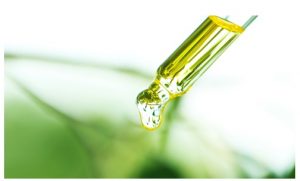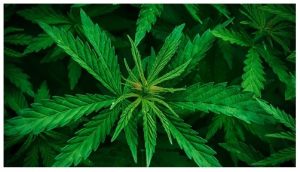
CBD oil, otherwise known by its longer name, cannabidiol, is one of over sixty of the compounds found in the cannabis?or marijuana plant. Immediately, this gives it a bad name throughout much of the world (although it’s completely legal). Unlike its brothers, tetrahydrocannabinol, or THC, or other cannabidiol compounds, CBD oil actually doesn’t create the “high” usually associated with marijuana. Rather, it’s used for medical purposes, and exhibits an incredibly different reaction in the brain and body.
CBD Oil: Not From Your Typical Hemp Plant
Generally speaking, the CBD oil that we use for medical purposes is taken from a plant that’s bred industrially, meaning that it isn’t the “natural hemp” that’s generally used for THC and marijuana smoking. After extracting the CBD compound, marijuana makers generally mix it with an oil, and then term it “CBD oil.” It’s taken in a variety of ways, including via pill, orally, via a spray, or topically. We’ll discuss the many different ways (and what’s best for you based on your current pain problems) in a later chapter.
A Brief History of CBD Oil
CBD cannabis has been utilized for pain relief for several hundred years. Back in the 1800s, for example, Queen Victoria of England utilized CBD oil to treat her cramps during her period, and she did this frequently, relying on it as her singular treatment. After that, however, people turned away from CBD oil, until, in the 1980s, studies showed that CBD could hold answers for things like anxiety, nausea, and pain relief.
Unfortunately for us, these studies didn’t get much press until a decade later, in the ‘90s. This occurred when an individual named Geoffrey Guy, one of the founders of a company called GW Pharmaceuticals in England, began to extract cannabis for medicinal purposes. From the research conducted during this time, it became apparent that CBD decreased seizures and anxiety in trials, which forced the rest of the world to pay attention. By the time 2009 hit?over ten years after that, a lab in Oakland, California had begun cultivating strains of cannabis that contained more CBD than THC?which was essential to decrease the psychoactive properties and give it complete medicinal benefits.
After this, the public began to take notice as well, especially as CBD oil began to affect the lives of people across the world. Namely, a family in Montana began to utilize CBD oil for their baby son, who had brain cancer. According to the baby’s doctor, the baby’s tumor was inoperable, and it was getting worse and worse all the time. This was even after thirty rounds of radiation, heavy morphine, and other medicines which basically knocked the baby out with side effects.
The baby’s father turned to CBD oil, not knowing what else to do. After a first administration of high concentration CBD oil, the baby’s tumor had actually shrunk. The baby lived for another two years after that, despite having had a pretty immediate death sentence. Most notably, the baby actually passed away after Montana made it more difficult for the family to purchase the CBD oil.
Other stories involving depression, anxiety, tumors, pain, seizures, arthritis, and countless other ailments are prolific and far-reaching. CBD oil has made a dramatic impact on the past ten years, during a time when stress and illnesses are at an all-time high. Turning away from lab-made medicines could be the key to get us back to our natural roots. It could be the key to greater health.
The Difference between Hemp Oil and Cannabis Oil
When looking to self-medicate and treat your bodily pain, it’s important to not mix up hemp oil and cannabis oil. It can be an easy mistake to make, given the fact that they both are derived from similar plants?and are often called the same thing, by accident. Especially if you go to the wrong online forums (there’s a LOT of misinformation out there).
CBD oil and hemp oil both come from the same plant genus, called Cannabis. But within that genus are three different species of plants, entitled the indica, the sativa, and the ruderalis. The strains from cannabis sativa and cannabis indica are generally found at your local marijuana dispensary (if you come from some of the western states, or other areas where marijuana is legal). The cannabis ruderalis, however, is generally grown in the wild and is known to be lower in THC, or the compound that makes you high.
Both CBD oil and hemp oil are generally denied from cannabis sativa. However, hemp oil and CBD oil are derived from different strains of the cannabis sativa. The strains are made in different ways to create different highs or aromas or CBD counts or THC counts.
Hemp oil is taken from the seeds of the hemp plant. This is similar to olives, coconuts, or other seeds?all of which we use for their medicinal and nutritional properties. Hemp oil is used much the same and is often turned to for recipes and salad dressings.
CBD oil, on the other hand, is made from the leaves, flowers and plant stalks of the plant, meaning that it has a completely different makeup.
Neither the hemp oil nor the CBD oil are used to get that famous THC “high.” However, only CBD oil can be utilized for medicinal purposes or pain relief, while hemp oil has other uses. In fact, both hemp oil and CBD oil have a THC concentration of 0.3% or lower, which isn’t a concentration that you can derive a high from.
The Endocannabinoid System and CBD Oil 먹튀검증커뮤니티

As mentioned, your body reacts differently to THC, or the compound found in marijuana, than it does to the compounds in CBD oil, despite them both being taken from the same plant.
What’s the reason for this difference in how your body reacts to CBD oil versus THC?
CBD oil simply doesn’t fill the same receptors in the brain. Essentially, the human body has a system called the “endocannabinoid system,” which sends and receives signals that it takes from any imbibed, smoked, or even cannabinoids that your body creates itself. This endocannabinoid system regulates things in your body such as what pain you experience, your immune system, your appetite, your sexual drive, and even just how much you sleep. It’s heavily linked to your circadian rhythm, for example, ensuring that you sleep during the nighttime and stay awake during the day (at least, it’s supposed to?but in our strange, new-era lifestyles, these hormones are often wonky, leading to things like insomnia and depression. That’s what CBD oil can cure).
CBD oil, unlike THC, creates a very complex system of reactions in your endocannabinoid system. While THC activates the “pleasure” receptors in your brain making food taste better and your jokes funnier, CBD oil acts in a way that allows your body to utilize its endocannbinoids in a better and more economical way.
Perhaps most importantly, for the sake of this book, we’ll be focusing on the fact that CBD oil can affect the way you experience pain. For example, when taken, CBD oil stops the body from absorbing something called anandamide. When you have more anandamide in your bloodstream and body, you can reduce the amount of pain you feel.
Furthermore, CBD oil may decrease the amount of inflammation that affects your greater nervous system, including your brain. This could alleviate several types of pain, and even sleepless nights associated with insomnia.
Overall known uses of CBD oil include the following:
- Protection of your neural pathways
- Decrease in inflammation
- Decrease in signs of depression
- Decrease in anxiety
- Fight the growth of some tumors
- Decrease risk of seizures and epilepsy
- Antioxidant
- Decrease in levels of psychosis
- Decrease in signs of anorexia
- Better sleep
- Fights pain
- Fights nausea
- Decrease in menstrual pain
- Decreases risk of diabetes
- Boosts your heart health
